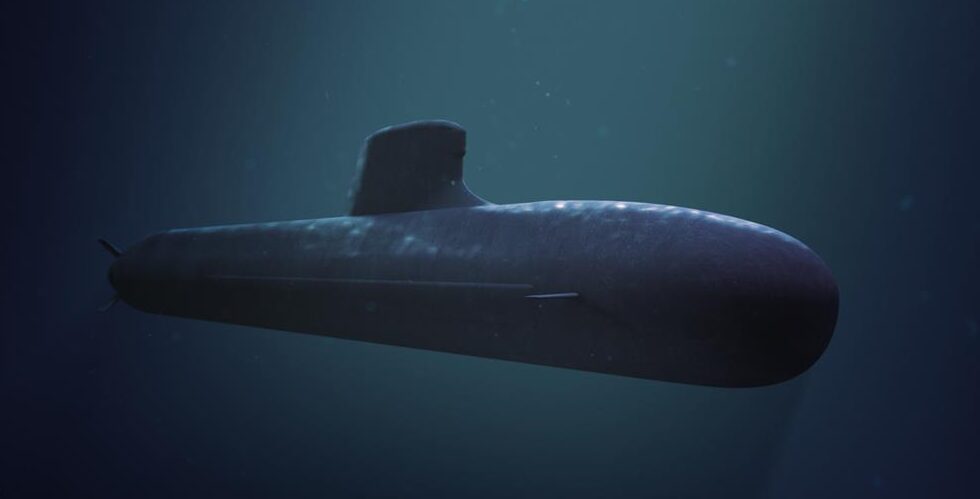Irritations regarding the defence cooperation with France for the procurement of twelve conventionally powered Submarines have prevailed in Canberra for some time.
Australia has now decided to discontinue its cooperation with the French Naval Group as part of the "Future Submarine Programme". Instead, it has agreed to co-operate with London and Washington on the construction of nuclear-powered submarines. submarines.
By the end of a 12-minute virtual press conference between US President Joe Biden, British Prime Minister Boris Johnson and Australian Prime Minister Scott Morrison on 15 September 2021, Australia's defence landscape had changed from the ground up. Australia is joining a new Indo-Pacific security partnership with the US and the UK. The trilateral security partnership is called AUKUS for short. It is to be signed in Washington next week. Mr Biden said the partnership was about updating US alliance networks to ensure that "the threats of today and tomorrow are better addressed". He added that "the future of each of our nations, and indeed the world, depends on a free and open Indo-Pacific that will endure and thrive in the decades to come".
Win-win-win for all
AUKUS came at a time of Chinese sabre-rattling and expansion of its influence in the Asia-Pacific region. Nevertheless, according to Washington's interpretation, it was not directed against China or any other country. "We all recognise the need to ensure long-term peace and stability in the Indo-Pacific," said Biden. "We must be able to address both the current strategic environment in the region and its evolution, because the future of each of our nations, and indeed the world, depends on a free and open Indo-Pacific that endures and thrives for decades to come." ahead," he added.
Under the agreement, the countries intend to strengthen their defence and security policy cooperation in the areas of cyber security, quantum technology and artificial intelligence.
Australia's ticket to the club of nations with nuclear-powered submarines
The first initiative of this "new enhanced trilateral security partnership", "will be the delivery of a nuclear-powered Submarine fleet for Australia," Morrison announced. He also stated that within the next 18 months, the principles of the new Submarines be clarified between the three nations. He emphasised that the boats were conventionally armed. Australia is not seeking nuclear weapons, said Morrison. He went on to say that the submarines would be built in Adelaide and expected them to be available in 2040.
The deal is a significant leap for all sides. Australia becomes the seventh nation to have nuclear-powered Submarines has. What's more, for Canberra the agreement is a further commitment to the USA, with which it is already allied via ANZUS and the quatrilateral security dialogue QUAD (between Australia, India, Japan and the USA). The Pacific pact ANZUS celebrated its 70th birthday on 1 September.
The White House views the AUCUS as an additional bond between Australia and the USA and the UK. Furthermore, according to Washington observers, the Biden administration is showing its willingness to shed its reluctance to involve others in advanced military technology. So far, the USA has only shared nuclear propulsion technology with Great Britain (back in 1958).
With AUKUS, the UK can underpin its new strategic perspective 'Global Britain'. The pact is also an important step for the British defence industry and its relations with Australia and the USA.
Regret in Paris
In a joint press release by Jean-Yves Le Drian, Minister for Europe and Foreign Affairs, and Defence Minister Florence Parly, both expressed their regret at the cancellation of the joint armaments programme. The press release states: "This decision is contrary to the spirit and letter of the previous cooperation between France and Australia, which was based on a relationship of political trust and the development of a high-level industrial and technological defence base in Australia."
On 11 February 2019, Australia and France signed a strategic partnership in Canberra, which focuses on the contract to build 12 Submarines of the 'Attack' class stood. The conclusion of the contract marked the end of a long and tough battle to replace the Royal Australian Navy's six Collins-class submarines. Naval Group was able to prevail against Japanese, Swedish, Spanish and German competitors in the approximately 49.5 billion euro deal (80 billion AU$). At the time, Australia had promised itself a transfer of expertise and the preservation of jobs in a heavily depressed shipyard landscape. Almost 200 Australian suppliers were pre-qualified for the programme with Naval Group Australia (based in Adelaide).
It had been crunching for some time. In Canberra, the cost-benefit calculation of the Submarines as well as their possible alternatives (including a review of the off-the-shelf purchase of the Barracuda class with nuclear propulsion (also Naval Group), armament and electronics from the USA) were questioned several times. According to Australian media reports, the report published by the Australian National Audit Office (ANAO) in mid-January 2021 on the status of the procurement of the twelve submarines came to the conclusion that significant cutbacks in costs, performance and delivery time were to be expected. Accordingly, the programme, which was still in the design phase at the time, had a delay of nine months compared to the preliminary design estimates. Two important contractually agreed milestones (review of concept studies and system requirements) were extended. As a result, the Australian Department of Defence was unable to secure the outflow of funds (amounting to USD 396 million for the design) on time. The Department of Defence's overall assessment of the risk is "high". According to the ANAO report, precautions were taken to minimise the risk. According to the revised plan, the first submarine, HMAS 'Attack', was expected in 2034, three years later than previously intended. The Collins class was due to be launched in 2036.
Naval Group affected - also Atlas Elektronik
The French Naval Group stepped forward as a contractual partner of the Australian Department of Defence. In October 2019, the Paris-based company announced the launch of Naval Group Pacific, responsible for commercial development and R&D activities in Australia and New Zealand, based in Sydney. Naval Group Pacific announced its first successes in December 2019 with the signing of nine different Memoranda of Understanding (MoUs) with Australian companies. These relate to CANTO®, a system of countermeasures against torpedoes for the Submarines and the surface ships of the Royal Australian Navy.
Naval Group commented on Australia's decision: "This is a major disappointment for Naval Group, which has provided Australia with a regionally superior conventional defence system. Submarine with exceptional performance. The Naval Group offered Australia a Submarine capability while making unrivalled commitments in terms of technology transfer, jobs and local participation. For five years, the Naval Group teams, both in France and Australia, as well as our partners, have given their best and Naval Group has honoured all its commitments."
Atlas Elektronik, which belongs to thyssenkrupp Marine Systems and develops and manufactures sonar systems for Submarinesa company specialising in minehunting boats and combat vessels as well as torpedoes and autonomous systems, was commissioned by Lockheed Martin Australia (LMA) to design the bow sonar base for the future Attack-class submarines. Australian media reported in spring 2021 that Atlas Elektronik wanted to work with its Sydney-based Australian subsidiary Sonartech Atlas as a subcontractor for the design phase.
Conincidences
The US-Australian-British initiative comes at almost the same time as the EU publishes its Indo-Pacific strategy. The US President will host the first face-to-face meeting with the heads of state and government of the Quad Group in the coming days. He sees the new partnership as part of "a larger constellation" in the region and promised stronger bilateral relations with long-time allies Japan, South Korea, Thailand and the Philippines as well as greater engagement with new partners such as India and Vietnam.
Without going into details, the US President is said to have discussed the planned pact during a telephone call with Chinese President Xi Jinping last week. According to reports from Washington, this consultation centred on Beijing's (lack of) commitment to bilateral and global issues such as climate change and the Covid-19 pandemic.












Common sense has prevailed. It was absolute nonsense to take French submarines designed for nuclear propulsion to Adelaide (Australia) and convert them to diesel propulsion there. Quite apart from the political point of view, this technical step was a step into the past. It was Australia's mistake to have negotiated this treaty in the first place, but at least the current government has made up for it.
This is not necessarily a win-win-win situation. What about Japan, South Korea and India?
Why are we only talking about the military hammer again?
The future with Asia lies in our trade relations and their protection. That is where the opportunity lies for Europe.